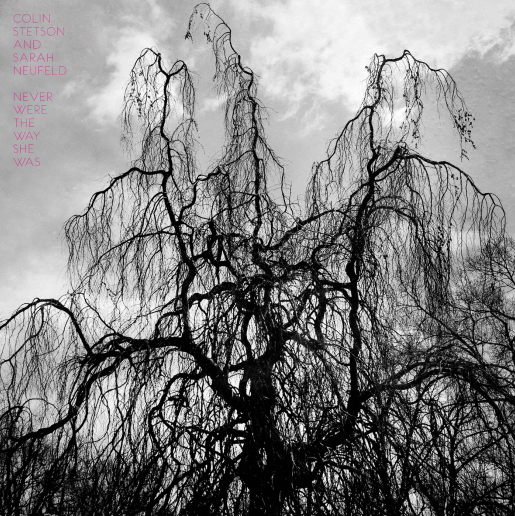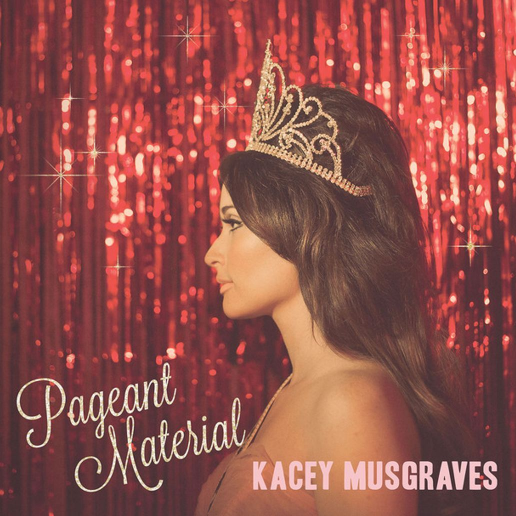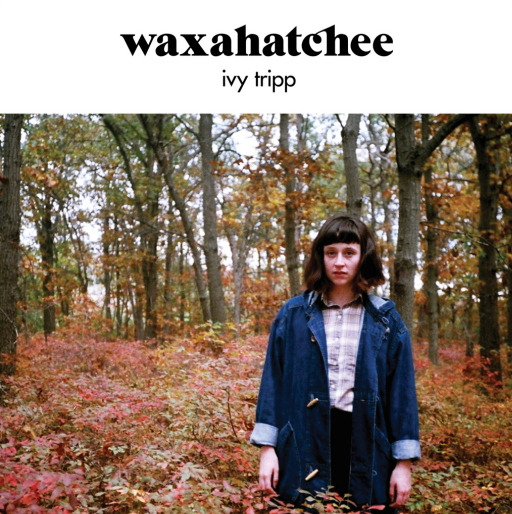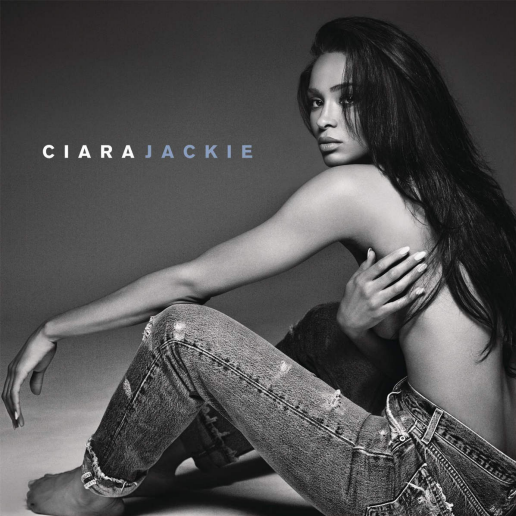Print Edition: July 15, 2015
 Colin Stetson and Sarah Neufeld
Colin Stetson and Sarah Neufeld
Never Were the Way She Was
Although his previous albums are considered solo efforts, rarely is baritone saxophonist Colin Stetson actually alone. Putting aside the brilliant marriage of Stetson’s playing with the way it’s produced (over 20 microphones are used in one take to capture Stetson’s playing, breathing, and even the percussive mechanics of his saxophone, the whole mix given a serrated edge by ambient artist / master of tension Ben Frost), Stetson frequently collaborates with vocalists to add, um, a voice to his already-distinct work — something human to pair with his machinelike mastery of the sax.
Never Were the Way She Was also belongs to Arcade Fire violinist Sarah Neufeld, and she definitely brings her own voice to a collaboration with one of the more unique virtuosos of the 21st century. She delivers chill-inducing vocals while dancing around Stetson’s percussive stomp in “The Rest of Us,” adding urgency to the already-furious track. She offers a woozy, pitch-bending counterpoint in the mournful “Won’t Be a Thing to Become,” and a more delicate kind of menace alongside Stetson’s snarls in “With the Dark Hug of Time,” which threatens to collapse into a black hole of deliciously dense bass.
Elsewhere, like in “In the Vespers,” busy, Philip Glass-like arrangements might push the listener away from close listening until a saxophone’s roar distances the piece from the blistering arpeggios. Other flirtations with drone, like brief closer “Flight,” are nowhere near as potent as “Dark Hug.” Ultimately, the collaboration is a successful melding of Stetson’s precise and rhythmic playing with Neufeld’s understated, atmospheric style, and they each draw moments of haunting beauty from each other.
I wanted to love Waxahatchee’s Ivy Tripp. A friend described it to me as “guitar-based writerly rock,” and that description, combined with a photograph of a twee, forest-dwelling hipster on the cover and song titles like “Bonfire” and “Summer of Love,” made me expect something sweet and earthy and substantial, like a summery Feist album.
Sadly, it’s none of those things.
Most of Ivy Tripp features Katie Crutchfield’s rough, untrained vocals clawing their way out of a thick grey blanket of guitar fuzz, which may be meant to be moody and evocative but comes across as muddy and unprofessional. Acoustic songs occasionally peek through the fog, such as “Stale by Noon,” which features a refreshingly clear and clean nine-note guitar riff — but the riff, which begins to grate on the nerves after 30 seconds, is repeated throughout the entire song.
The. Entire. Song.
Most of the other songs don’t feature more than four or five chords, either, and have a wandering, aimless structure that never seems to reach a satisfying bridge or chorus.
As for the lyrics, they’re all sung in first person about the various pitfalls of love, and are either incomprehensibly opaque (“Travel the world ivy tripping / with no spotlight”) or a little too simple (“I know why you would long for your past / I know why you would run away so fast”). A vein of self-centred millennial anxiety also weighs the album down: “I wasted my boredom hastily / I’m a basement brimming with nothing great,” Crutchfield sings in “The Dirt.”
The final product is unmelodic and repetitive with all the sophistication of a Buzzfeed listicle. If guitar-based writerly rock is your jam, keep looking — this isn’t one you’ll play more than once.
 Kacey Musgraves
Kacey Musgraves
Pageant Material
Cheerful whistles, oasis-invoking strings, gentle acoustics, and drawn-out, definitively country vocals set the stage for Pageant Material, Kacey Musgraves’ fifth release.
“Dime Store Cowgirl” is a good example of an overdone country theme, taking the country-girl-meets-big-world, “can’t take the country out of me” theme and setting it to acoustic guitar riffs I’m sure I’ve heard somewhere before. Yet it has a charming authenticity, and is perhaps fresher because of the company it keeps on the album: “This Town” with its Fraser Valley-relatable depiction of small-town life, and many of the tracks’ testaments to the fact that, despite feeling like a fast, modern world, in many ways we’re not modern or glossy at all — we’re still tied to our hometowns, our families, our simple, straightforward ways of living, and our sort-of endearingly kitschy idioms (“mind your own biscuits and life will be gravy,” for example).
Homespun honesty versus image and glitz is a featured theme in the title — and my favourite — track, and it all ties up unobtrusively in the line, “I ain’t pageant material; I’m always higher than my hair, and it ain’t that I don’t care about world peace, but I don’t see how I can fix it in a swimsuit on a stage.” On the production side of things, filling out the acoustics-and-vocals combo with a 10-piece set of strings brings a bit of gleam.
Musgraves’ voice flows slow and simple with instruments that evoke a sense of familiarity — and sometimes, familiar isn’t such a bad thing. It’s charming, gently thought-provoking, and easy to slip into for a while.
Strings swell and violins climb in a spiral as if to royally introduce a princess — and, after a beat, out comes Ciara rapping “I’m a bad motherfucker.” “Jackie (B.M.F.)” sets the tone for an album that promises a surprise around every corner, then doesn’t deliver. Nearly every song has a major change in rhythm or tone, but that’s as far as variety goes.
The lyrics are pretty commonplace: “Don’t you know that we’re just getting started,” from “Stuck On You,” or the quintessential “Oh, oh, oh” in lieu of real words on “Fly.” Moments like these take the focus off of what the song is saying, instead leaning on the electronic accompaniment to make you feel something. Even then, much of the instrumentation sounds like something I’ve heard before — maybe from the musical presets of 2009 Garageband (for example, ‘beat 1,’ ‘beat 2,’ etc.).
That said, Ciara doesn’t need or want to prod at your feelings or satiate your artistic palette. Naming the album after her mother, Ciara ends on a track that begins with noises from her infant son as if to make a statement about the circle of life and motherhood. But really, it’s just fun. Jackie is a summer album, with sweet beats and sassy lines about dancing at parties, wearing high heels, and being an independent woman. It’s perfect for a small set of speakers at the beach when you’re psyching yourself up to feel good in your bikini.




